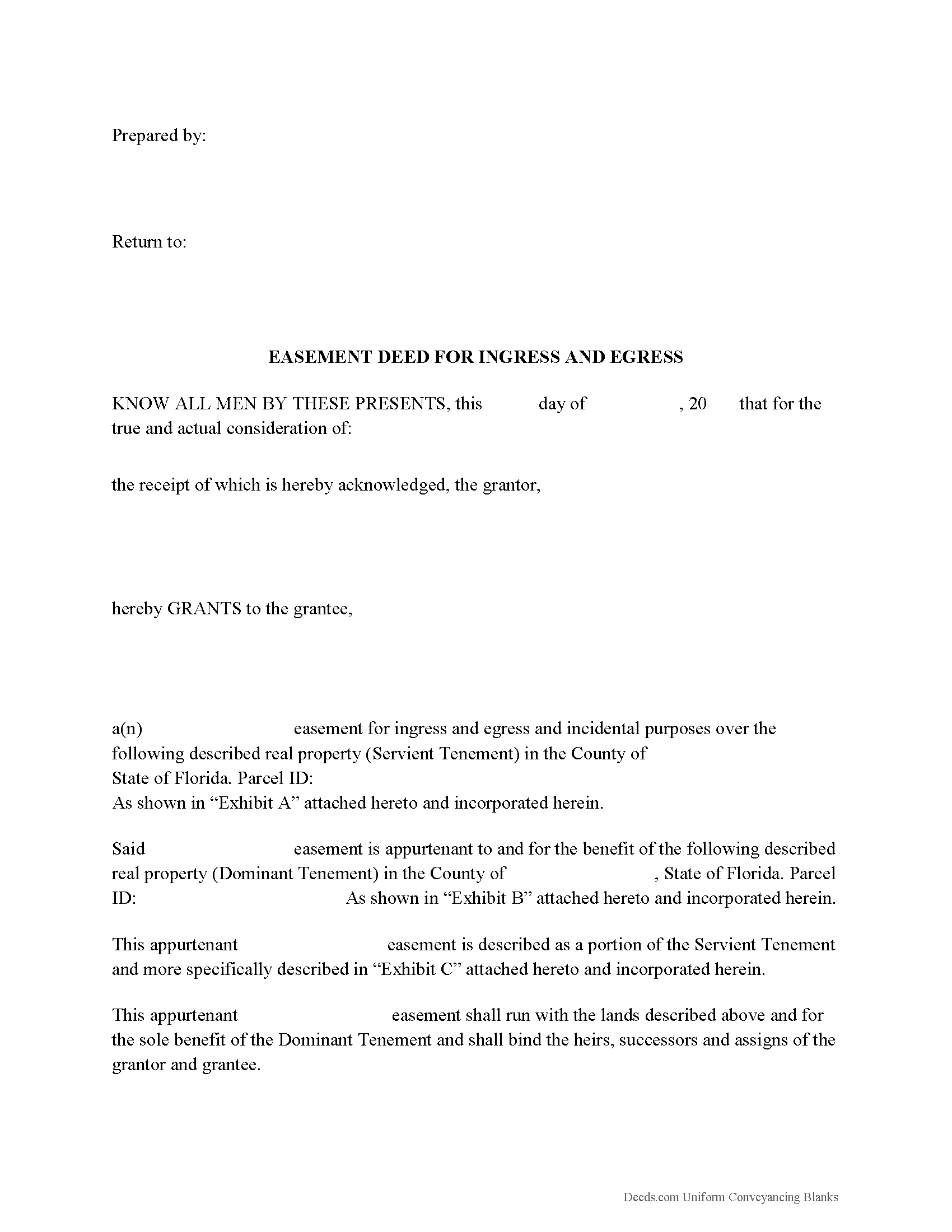Download Florida Easement Deed Legal Forms

Florida Easement Deed Overview

An easement is a non-possessory right to use another person's land for a specific purpose. This right is granted by an easement deed. In Florida, easement deeds can be in many different forms, such as an implied grant of way of necessity, a statutory way of necessity exclusive of common law right, a conservation easement, or a solar easement.
An implied grant exists when a person has previously granted lands to which there is no accessible right-of-way, except over his or her land. In these instances, it is presumed that a right-of-way has been granted or reserved. A statutory way of necessity exclusive of common law right exists when any land, which is being used for dwellings or is desired to be used as a dwelling, or for agricultural or timber raising or cutting purposes is shut off or hemmed in by lands, fencing, or other improvements by other persons so that no practicable route of egress or ingress is available from the nearest public road from which the landlocked landowner has vested easement rights (704.01).
A conservation easement can also be created in Florida and can be held by a governmental agency or charitable organization whose purposes include protecting the natural, scenic, or open space values of real property. This type of easement runs with the land and is binding on all subsequent owners of the servient estate. The servient estate is the estate granting the burden. A solar easement is obtained for the purpose of maintaining the exposure of a solar energy device. Conservation and solar easements alike are subject to being recorded and indexed in the same manner as any other instrument affecting the title to real property (704.07).
In order for recording to take place, the execution of an easement deed must meet the requirements of any other real estate deed. Namely, it must be acknowledged by the party executing it, proved by a subscribing witness, or legalized or authenticated by a civil-law notary or notary public who affixes his or her official seal before the officers in the manner provided by law (695.03). The grantor's signature requires two witnesses; however, the notary public can be one of the witnesses, but the notary must then sign the easement deed twice: both as a notary and as a witness. Acknowledgements made in Florida or in another state can be made by any of the officers listed in 695.03 of the Florida Statutes. A certificate of acknowledgement or proof, under the seal of the court or officer taking acknowledgements, should be attached to the easement deed presented for recording.
Recording an easement deed will place the document in the public records, which will provide constructive notice of its existence. The act of recording a conservation easement will provide notice to the property appraiser and tax collector of the county of the conveyance of the conservation easement (704.06-7). An easement deed is subject to the recording laws just as any other deed and will therefore not be good and effectual in law or in equity against creditors or subsequent purchasers for a valuable consideration and without notice, unless it is recorded according to law (695.01). The priority of documents is determined by the order and time of recording. Easement deeds and all other real estate documents affecting title are recorded with the clerk of the circuit court in the county where the property is located.
(Florida Easement Deed Package includes form, guidelines, and completed example)